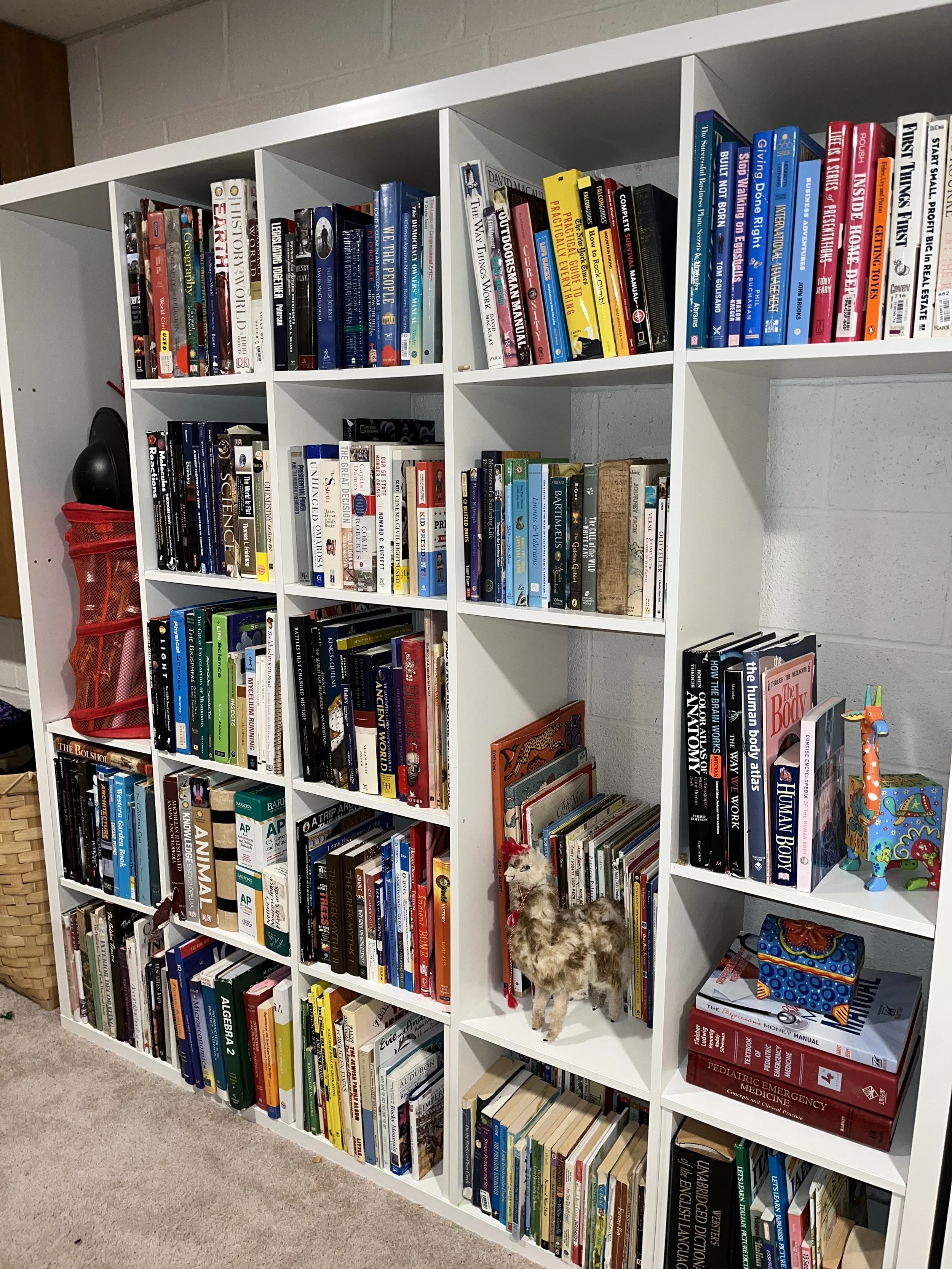Why Decluttering Books Is So Hard
As a professional organizer, I’ve worked with a lot of clients who are ready to declutter, until we get to the books. That’s where everything slows down.
People usually say the same things:
“I haven’t read this one yet.”
“I already read this, but I might want to read it again someday.”
And I get it. Books feel special. They represent memories, interests, goals, even the version of yourself you hope to be. But here’s the honest question I always ask:
What are the chances you’ll actually read or reread this book? Really.
For unread books, we hang on because of guilt. “I spent money on this,” or “I should read more.” But if that book has been sitting on a shelf for years, untouched, it might be time to admit it’s not going to happen, and that’s okay. Letting go of a book isn’t letting go of the idea of being a reader. It’s just letting go of something that’s no longer serving you.
For already-read books, the logic is “Well, I could reread it.” Sure, but how often does that really happen? Most of us are more excited about discovering something new than going back to something we already know.
And here's another thing to keep in mind: the library exists. If you ever do feel the urge to read that book again, or finally read it for the first time, you can probably borrow it.
This doesn’t mean you need to get rid of all your books. Not at all. Keep the ones that truly matter to you, the ones that shaped you, moved you, or that you really do plan to revisit soon. But try to be honest with yourself about what’s worth keeping and what’s just taking up space.
Books are powerful, but they don’t need to be permanent. The space you clear by letting go can be just as valuable as the stories you keep.
How to Decide Which Books to Keep and Which to Donate
If you're ready to declutter your bookshelves but not sure where to start, here are a few simple tips I give to my clients:
1. Ask Yourself Honestly: Will I Really Read This?
If it’s been on your shelf for years and you’ve never picked it up, it might be time to let it go. No judgment. Interests change.
2. Did I Enjoy It the First Time?
If you’ve already read the book, ask yourself if you truly loved it. Not just “it was okay”, I mean really loved it. If it didn’t leave a strong impression, it’ssafe to donate.
3. Would I Buy This Again Today?
This is a great question to cut through guilt. If you saw this book in a store right now, would you still spend money on it? If not, that says something.
4. Check If It’s Available as an eBook
If you’re short on space, consider keeping a digital version instead of the physical copy. Most popular books are available on Kindle or other e-readers.
5. Keep Only What Feels Essential
This will look different for everyone, but in general:
• Keep books that deeply inspired or impacted you
• Keep reference books you actually use
• Keep favorites you know you’ll reread
The rest? It’s okay to pass them along. Someone else might be waiting to discover them.
Books are meant to be read, not just stored. By letting go of the ones you're not using, you're making room — for new ideas, fresh reads, and a clearer space. And that’s something any book lover can appreciate.


